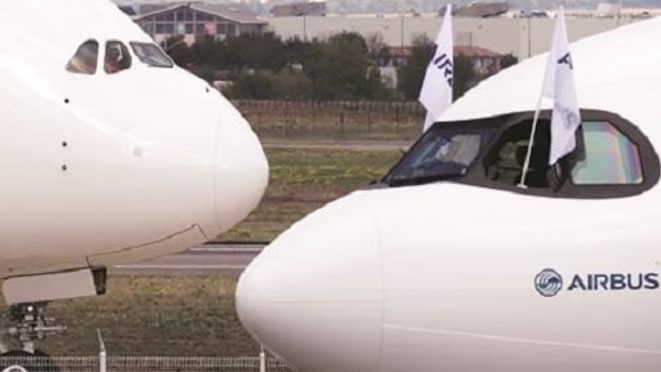
Airbus, the European multinational aerospace corporation, has seen an 11% drop in its deliveries to 127 aircraft in the third quarter. This decline has been attributed to supply chain concerns and has had a significant impact on the company’s financial performance.
The company’s Chief Executive Officer, Guillaume Faury, expressed his disappointment over the decline in deliveries, stating that it was “disappointing but not surprising given the current environment.” He also highlighted that the company was working closely with its suppliers to resolve the issues and hoped to see improvements in the coming months.
The supply chain issues have been a significant concern for Airbus in recent years, as the company relies heavily on a complex network of suppliers to manufacture its aircraft. Any disruption to this network can have a significant impact on the company’s production schedule and delivery timelines.
The current disruption has been caused by a shortage of parts and materials, as well as logistical challenges due to the COVID-19 pandemic. The pandemic has led to the closure of borders and reduced air travel, which has made it difficult for suppliers to transport goods and materials.
The supply chain problems have affected all aspects of Airbus’ production, including the A320 and A330 families of aircraft. However, the company has stated that it is working hard to address the issues and is confident that it can improve its delivery performance in the coming months.
Airbus is not the only aerospace company to be affected by supply chain concerns. Boeing, its main rival, has also been grappling with similar issues, as has the wider industry as a whole. The pandemic has caused significant disruptions to global supply chains, with many manufacturers struggling to source the materials and parts they need to produce their products.
The supply chain disruptions have had a significant impact on Airbus’ financial performance, with the company reporting a net loss of €1.1 billion for the first nine months of the year. This represents a significant decline from the €2.2 billion in profits that the company reported for the same period last year.
Despite the challenges, Airbus remains committed to its long-term strategy and is investing heavily in the development of new technologies and products. The company is currently working on several new aircraft designs, including the A321XLR, a long-range variant of the A321neo, and the A350-1000, a new version of the popular A350 aircraft.
Airbus is also focused on improving its production processes and supply chain management, in order to reduce costs and improve efficiency. The company has implemented a number of initiatives to achieve these goals, including the introduction of new digital technologies and the optimization of its production lines. Airbus is also investing in new data-driven technologies, such as artificial intelligence and machine learning, to enable the company to make faster and more informed decisions. Finally, Airbus is working with its partners to develop new processes for inventory
The company is also working closely with its suppliers to improve transparency and collaboration, with the aim of ensuring that its supply chain is as robust and resilient as possible. This includes working with suppliers to develop contingency plans and alternative sourcing strategies, in order to mitigate the impact of any future disruptions.
In conclusion, the supply chain concerns have led to an 11% decline in Airbus deliveries to 127 aircraft in the third quarter. The company is working hard to address the issues and improve its delivery performance, but the challenges posed by the COVID-19 pandemic and the broader global supply chain disruptions will continue to be a concern in the coming months. Airbus remains committed to its long-term strategy and is investing heavily in new technologies and products, as well as improving its production processes and supply chain management.









